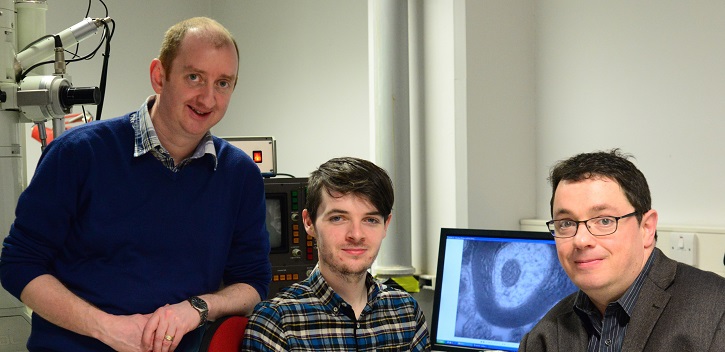Gut Microbes regulate Myelination in the Brain

UCC scientists have shown for the first time that gut bacteria have a direct physical effect on the brain.
The researchers at the Science Foundation Ireland-funded APC Microbiome Institute and Department of Anatomy and Neuroscience at UCC have shown that myelination of nerves in the prefrontal cortex region of the brain is dependent on the presence of the host microbiome. These surprising new findings have implications for treating demyelinating disorders such as multiple sclerosis. The research is published today in the Nature Journal Translational Psychiatry.
Over the past decade it is becoming increasing clear that the microbes which reside within and around us play a clear role is our health and wellbeing. Perhaps most surprising of all is the realisation that gut bacteria can even influence brain function and behaviour.
Healthy body, healthy mind? You really can feel it in your gut https://t.co/2IPlHWTVmv @UCC @ScienceIrel @Pharmabiotic
— SiliconRepublic (@siliconrepublic) April 6, 2016
Professor John F. Cryan and Dr Gerard Clarke along with their PhD student Alan Hoban have shown that germ-free mice which are completely devoid of gut bacteria display greater increase in myelin-related gene expression in the prefrontal cortex. This region of the brain is key to higher cognitive functions and in the expression of anxiety and social behaviours. Importantly, the team were able to visualise the extent of this increase in myelination using transmission electron microscopy.
When a normal microbiome was introduced into these animals, some of the changes in myelination were reversed. More work is needed to advance our understanding of the mechanisms behind the relationship between the microbiota and myelination and why only the cortex seems to be susceptible to its potential influence.
“It is likely that key signals from the gut to the brain provide a brake on myelination processes” says Prof Cryan. Furthermore, he says that “understanding what these may open innovative gut microbiome-based strategies for tackling myelin-related disorders”.
From @rtenews UCC discovery links microbes and brain health -@ucc @AnatNeuroUCC @UCCpsychiatry @Pharmabiotic https://t.co/zRTnLKrBvO
— John F. Cryan (@jfcryan) April 5, 2016
This research continues to broaden the concept that the microbiome has a remarkable influence over fundamental brain processes and may be harnessed in the future for a wide range of brain disorders, including depression and anxiety.
This research was supported by Science Foundation Ireland through a Centre grant to the APC Microbiome Institute. The research was co-authored by APC researchers at UCC, Alan Edward Hoban, Roman M Stilling, Feargal Ryan, Marcus Claesson, Fergus Shanahan and Ted Dinan.
Great work by @AlanEdHoban-& @NeuRoman_cer @Feargal_Ryan linking myelination with microbiome https://t.co/mJyEzzOVoU pic.twitter.com/PAaPNzCCf9
— John F. Cryan (@jfcryan) April 5, 2016
Full reference:
‘Regulation of Prefrontal Cortex Myelination by the Microbiota’ Alan Edward Hoban, Roman M Stilling, Feargal Ryan, Marcus Claesson, Fergus Shanahan and Ted Dinan Nature Translational Psychiatry http://www.nature.com/doifinder/10.1038/tp.2016.42
